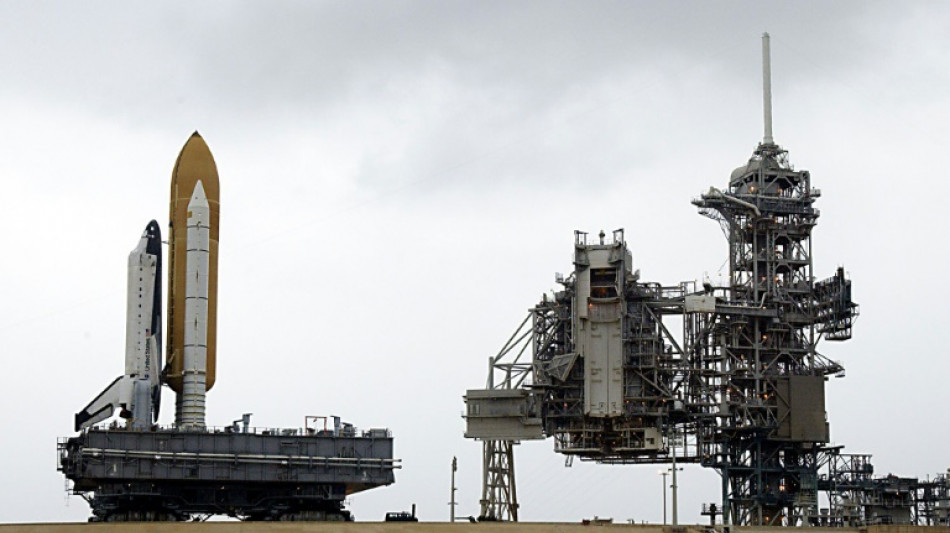
-
 India launches strikes on Pakistan as Islamabad vows retaliation
India launches strikes on Pakistan as Islamabad vows retaliation
-
Alpine shock as F1 team principal Oakes resigns

-
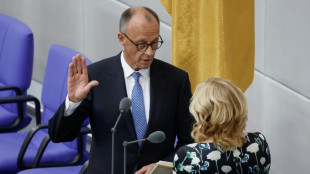 Merz elected German chancellor after surprise setback
Merz elected German chancellor after surprise setback
-
Gujarat edge Mumbai in last-ball thriller to top IPL table

-
 Israel's plan for Gaza draws international criticism
Israel's plan for Gaza draws international criticism
-
SpaceX gets US approval to launch more Starship flights from Texas
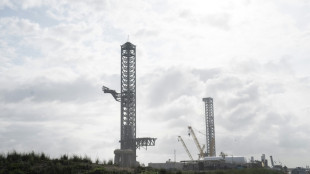
-
 Alpine F1 team principal Oakes resigns
Alpine F1 team principal Oakes resigns
-
Colombia's desert north feels the pain of Trump's cuts

-
 Arsenal determined 'to make a statement' against PSG in Champions League semi-final
Arsenal determined 'to make a statement' against PSG in Champions League semi-final
-
Top US court allows Trump's ban on trans troops to take effect
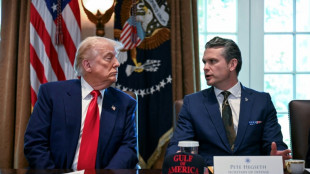
-
 Whole lotta legal argument: Led Zeppelin guitarist Page sued
Whole lotta legal argument: Led Zeppelin guitarist Page sued
-
US, Yemen's Huthis agree ceasefire: mediator Oman
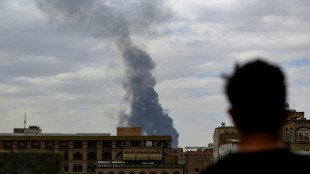
-
 Johnson receives special invite to PGA Championship
Johnson receives special invite to PGA Championship
-
Trump says US should to stop 'subsidizing' Canada as trade talks continue
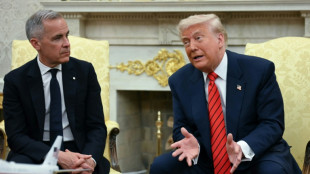
-
 Indian PM vows to stop waters key to rival Pakistan
Indian PM vows to stop waters key to rival Pakistan
-
Thousands demonstrate in Panama over deal with US military

-
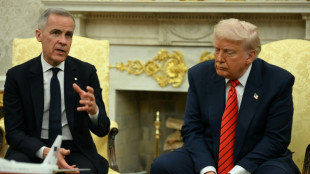 Canada 'never for sale', Carney tells Trump
Canada 'never for sale', Carney tells Trump
-
Vatican readies for conclave lockdown

-
 Championship club Watford sack manager Cleverley
Championship club Watford sack manager Cleverley
-
New German leader Merz stumbles out of the blocks
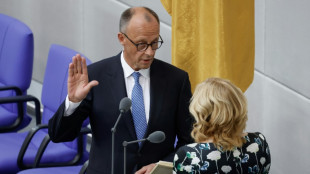
-
 'Wagatha Christie': Vardy and Rooney settle on legal costs
'Wagatha Christie': Vardy and Rooney settle on legal costs
-
Defending Rome champion Zverev blames burn out on poor run of form

-
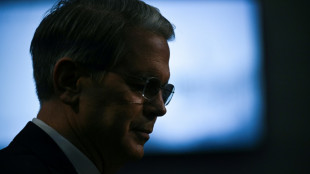 No signs of US recession, Treasury Secretary says
No signs of US recession, Treasury Secretary says
-
Israel pummels Yemen airport in reprisal against Huthis
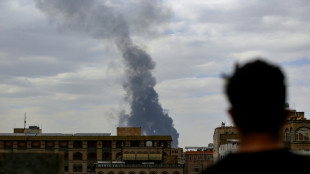
-
 Swiatek struggling with 'perfectionism' ahead of Rome
Swiatek struggling with 'perfectionism' ahead of Rome
-
Germany's Merz elected chancellor after surprise setback
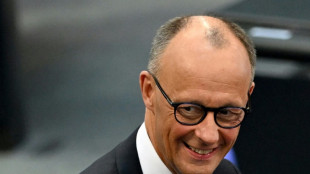
-
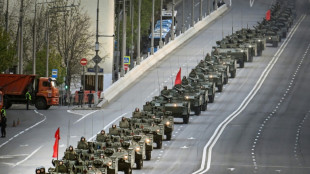 Ukraine fires drones on Moscow days before WWII parade
Ukraine fires drones on Moscow days before WWII parade
-
EU proposes ending all Russian gas imports by 2027
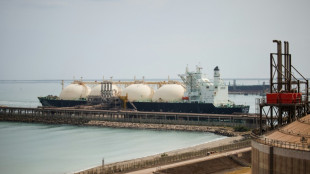
-
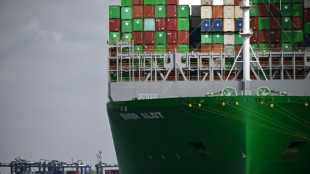 UK, India strike trade deal amid US tariff blitz
UK, India strike trade deal amid US tariff blitz
-
Move over Met Ball. For fashion wow head to the Vatican

-
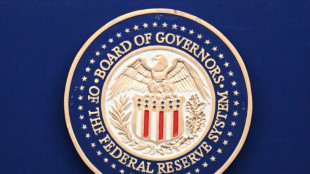 Stocks retreat as traders cautious before Fed rates call
Stocks retreat as traders cautious before Fed rates call
-
EDF complaint blocks Czech-Korean nuclear deal
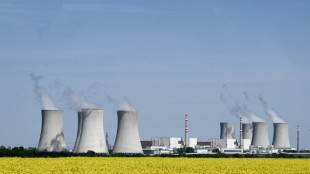
-
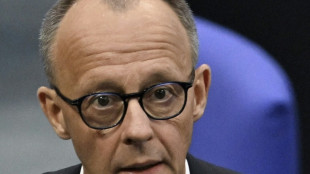 Germany's Merz faces new vote for chancellor after surprise loss
Germany's Merz faces new vote for chancellor after surprise loss
-
US trade deficit hit fresh record before new Trump tariffs

-
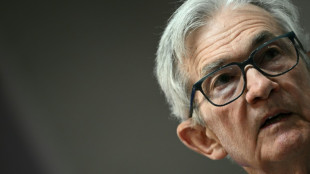 US Fed starts rate meeting under cloud of tariff uncertainty
US Fed starts rate meeting under cloud of tariff uncertainty
-
Trump's Aberdeen course to host revived Scottish Championship

-
 Argentina's 1978 World Cup winner Galvan dies
Argentina's 1978 World Cup winner Galvan dies
-
French lawmakers want Dreyfus promoted 130 years after scandal

-
 AFP Gaza photographers shortlisted for Pulitzer Prize
AFP Gaza photographers shortlisted for Pulitzer Prize
-
Cristiano Ronaldo's eldest son called up by Portugal Under-15s

-
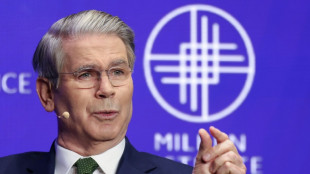 Stocks diverge as traders await Fed rates meeting
Stocks diverge as traders await Fed rates meeting
-
Tesla sales fall again in Germany as drivers steer clear of Musk
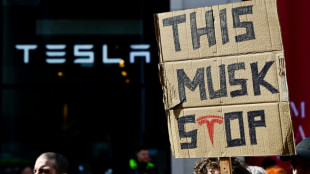
-
 Radiohead's Jonny Greenwood says shows cancelled after 'credible threats'
Radiohead's Jonny Greenwood says shows cancelled after 'credible threats'
-
Hamas says Gaza truce talks pointless as Israel wages 'hunger war'

-
 Aussie cycling star Ewan announces shock retirement
Aussie cycling star Ewan announces shock retirement
-
Blow for Germany's Merz as he loses first-round vote for chancellor
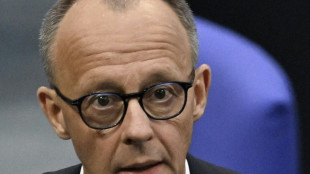
-
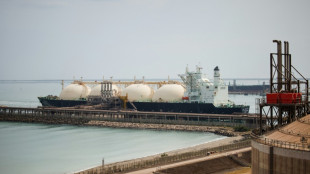 EU to lay out plan to cut last Russian gas supplies
EU to lay out plan to cut last Russian gas supplies
-
Food delivery app DoorDash agrees to buy peer Deliveroo

-
 Zhao's world championship win will take snooker to 'another level': sport's chief
Zhao's world championship win will take snooker to 'another level': sport's chief
-
Ukraine fires drones on Moscow days before Red Square parade
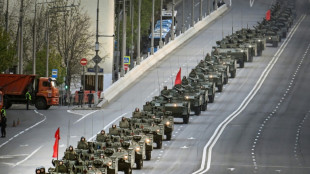

Columbia disaster that scuttled the space shuttle
America may now be aiming to put astronauts back on the Moon, but for years the United States turned its back on manned missions after the Columbia space shuttle disaster.
Its space programme suffered a catastrophic setback when all seven astronauts were killed when the shuttle broke up on re-entering the Earth's atmosphere 20 years ago on February 1, 2003.
It was the second shuttle disaster after the Challenger explosion of 1986 which also killed the crew and led to sharp criticism of the safety culture at NASA.
The shuttle fleet was grounded for two and a half years and it sparked a major shift in American space flights.
In 2004, president George W. Bush announced that the eye-wateringly expensive programme would be retired.
For years after the last shuttle flight in 2011, NASA found itself dependent on Russia for transport to the International Space Station (ISS) until Elon Musk's Space X began flying passengers there in 2020.
As well as the Moon, Washington is now preparing for a manned mission to Mars, scheduled tentatively for the late 2030s or early 2040s.
- 'Trails of smoke' -
Columbia broke up at 203,000 feet (61,900 metres) over eastern Texas just as the mission controller in Houston was talking to Columbia commander Rick Husband.
"To Columbia, here is Houston... we did not copy your last" message.
After a moment, Husband replied: "Roger but..."
After a brief crackling noise, contact was lost.
Columbia disappeared from radar screens at 9:00 am (1400 GMT), 16 minutes before it was due to land.
The flaming debris from the 80-tonne craft was caught streaking across the sky over the southern US by local TV stations, with parts scattered over Texas and Louisiana.
Bob Molter from Palestine, Texas, told National Public Radio how he saw the shuttle break up in the sky.
"There was a big boom that shook the house for more than a minute, and I went outside because I thought there had been a train accident on the nearby line.
"But there was nothing, and then I looked up and saw the trails of smoke zig-zagging, going across the sky."
- Heroes -
Columbia was the oldest shuttle to fly in orbit.
When it took off on its 28th flight on January 16, 2003 for a 16-day mission to carry out experiments it had been in operation for over 20 years.
Flight STS-107 was launched under extremely tight security in the wake of the September 11, 2001 attacks and due to the presence on board of Israel's first astronaut, Ilan Ramon.
Bush cut short a stay at the Camp David presidential retreat and raced back to Washington following the tragedy. In a televised address he hailed the crew, two of whom were women, as heroes.
A probe revealed that the shuttle disintegrated due to damage caused by a piece of foam from the external fuel tank that took a chunk out of the orbiter's left wing during liftoff.
This left it unable to withstand the extreme temperatures generated by re-entry.
- End of shuttle programme -
The shuttle programme was born in 1972 under president Richard Nixon and went on to become the major focus of US human spaceflight ambitions over the next four decades.
The fleet also acted like space trucks, carrying more than 1,500 tonnes of equipment to help build the first space telescope, Hubble, and the International Space Station.
After the Columbia disaster, NASA underwent sweeping changes aimed at improving its culture and safety.
The agency resumed shuttle flights in July 2005, with Discovery, then Endeavour and finally Atlantis continuing to fly missions to the ISS until 2011.
P.Costa--AMWN